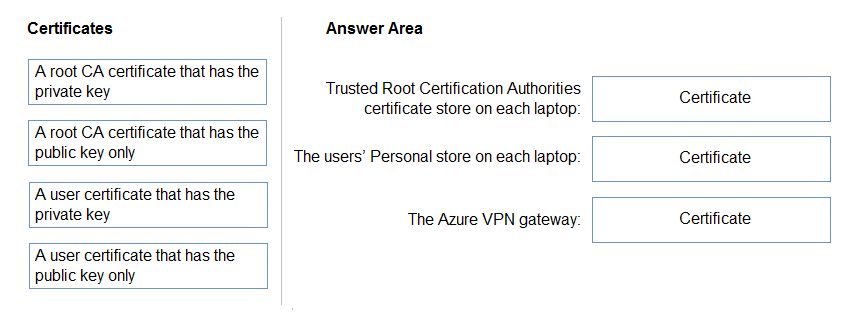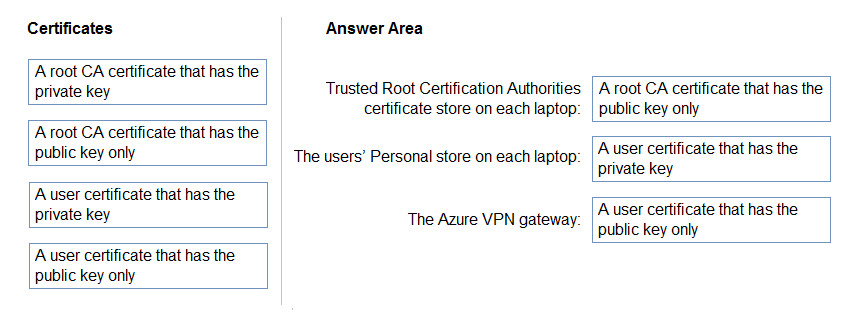

DRAG DROP -
Your company has users who work remotely from laptops.
You plan to move some of the applications accessed by the remote users to Azure virtual machines. The users will access the applications in Azure by using a point-to-site VPN connection. You will use certificates generated from an on-premises-based Certification authority (CA).
You need to recommend which certificates are required for the deployment.
What should you include in the recommendation? To answer, drag the appropriate certificates to the correct targets. Each certificate may be used once, more than once, of not at all. You may need to drag the split bar between panes or scroll to view content.
NOTE: Each correct selection is worth one point.
Select and Place:

MaxBlanche
Highly Voted 4 years, 8 months agoArio
3 years, 10 months agoRayrichi
4 years, 8 months agoMj11Az
4 years, 2 months agoAmit3
4 years, 1 month agoFinMessner
3 years, 6 months agokilowd
3 years, 2 months agogp777
Highly Voted 4 years, 6 months agoAD3
3 years, 5 months agoheero
Most Recent 2 years, 10 months agosenseibrutal
3 years agoSnownoodles
3 years, 3 months agoteyol51117
3 years, 4 months agoitenginerd
3 years, 4 months agoplmmsg
3 years, 5 months agoanto64
3 years, 7 months agoAD3
3 years, 5 months agoAD3
3 years, 5 months agoAD3
3 years, 5 months agoitenginerd
3 years, 4 months agotinchohd
3 years, 7 months agoivanmung
3 years, 8 months agopruntelnetworks
3 years, 7 months agoGtese
3 years, 10 months agosyu31svc
3 years, 10 months agopoplovic
3 years, 10 months agosouvik123
3 years, 11 months agoGautam1985
3 years, 11 months agosouvik123
3 years, 11 months ago